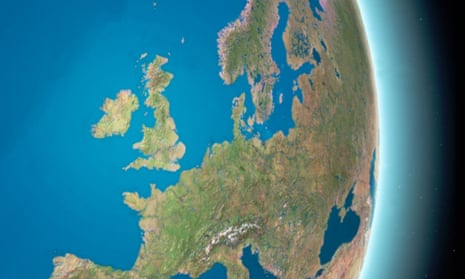Micro-businesses are protesting against new VAT laws that they say could force them to reconsider trading in Europe.
From 1 January 2015, EU VAT will be charged in the country where products are bought as opposed to the country where they are sold. The legislation applies to digital products only, such as e-books, online courses or downloads.
UK businesses are currently exempt from paying VAT if they sell under £81,000 worth of products a year. However this threshold will be removed for those exporting digital products and services to Europe, from New Year’s Day.
From January, if a UK business makes a sale in another EU member state they will have to pay VAT there. The only way to comply is to register for VAT with that country or register for HMRC’s Mini One Stop Shop scheme (VAT MOSS). According to the HMRC website, the VAT MOSS scheme requires businesses to submit a ‘single calendar quarterly return’ and VAT payment to HMRC, which then sends the ‘appropriate information and payment to each relevant member state’s tax authority.’
Amanda Tickel, tax partner at KPMG UK, says: “It’s important to understand that the UK threshold of £81,000 is not being removed and micro-businesses selling digital services to customers in the UK can still trade VAT free as long as they are below that threshold.
“What is changing is that all sales of relevant digital services to EU customers outside the UK will be subject to the local VAT regardless of the value of the sales as there is no minimum threshold.”
Tickel adds: “The issue is that once registered for UK VAT, the threshold no longer applies and all UK sales become liable for UK VAT.”
Lorraine Dallmeier, who runs an online skincare school, has organised a “Twitter storm” on 25 November to protest against the changes. “[The new legislation] is going to have a huge financial impact on people, as well as the administrative burden that comes with it,” says Dallmeier. “There are 28 countries in the EU with 75 different VAT rates.”
Businesses have three options, says Dallmeier: register to pay VAT in every EU member state you sell to; register for the VAT mini one stop shop scheme (VAT MOSS) or stop selling to the EU.
Dallmeier became involved in discussions with other business owners on social media. “I am just one of a number of people pulling strings, trying to get the message out, and telling HMRC that this is crazy.”
Dallmeier has sold her products to 18 EU member states in the past two years, and says she only recently became aware of the new legislation. Since then she been in touch with her local MP, but says “no-one is listening or helping.”
A spokesperson for HMRC says the changes should only have a “small effect on administrative burdens.”
“Although a business needs to have a UK VAT registration number before it can register for the Mini One Stop Shop (MOSS) online service, provided it separates the cross-border part of its digital services business from the domestic part, it can voluntarily register for VAT on the cross-border business only.”
The HMRC spokesperson says that most micro-businesses, such as developers of apps or digital downloads, trade through a third party platform or marketplace, like an app store.
“Where this happens it will be the responsibility of the marketplace operator to account for the VAT. As a result the vast majority of micro-businesses are unlikely to be affected by the changes,” adds the spokesperson.
According to the HMRC website, the changes could affect around “34,000 small and medium businesses” in the UK.
Some business owners are concerned that the legislation will restrict their opportunities to sell abroad.
Beth Johnson, who runs Mumbles Mummy, selling online crochet patterns, says: “Recently I have been starting to write my patterns out so people can download them. I wanted to push my business forward, because even to make a simple hat takes a minimum of an hour. I had to look at ways of expanding.”
Johnson says she has struggled to understand what is required of her as the new legislation comes into force.
Tickel, from KPMG, advises small businesses to work out whether it is financially worthwhile for them to keep trading in certain countries. She says: “UK-based micro-businesses selling digital services into EU countries should do a careful cost- benefit analysis.”
A change.org petition has been set up, asking Vince Cable to intervene and uphold the existing VAT exemption tax.
The HMRC spokesperson says that it has provided a “significant amount of information” about the VAT rule changes and MOSS on the GOV.UK website. “We have worked closely with stakeholders and representative bodies to publicise the changes, been involved in various webinars, held a conference that was streamed on the web, and regularly issue Twitter alerts. We have issued regular updates over the last 12 months in the quarterly VAT Notes and we are organising a Twitter clinic that anyone can join to ask questions.”
Sign up to become a member of the Guardian Small Business Network here for more advice, insight and best practice direct to your inbox.

Comments (…)
Sign in or create your Guardian account to join the discussion